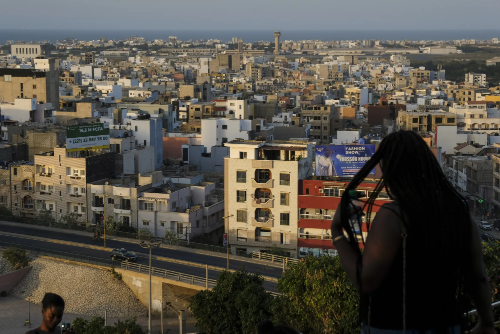Senegal’s Debt Surges to 105% of GDP as IMF Backs Audit Findings

TLDR
- Senegal’s public debt rose to 105.7% of GDP by the end of 2024, according to the IMF, which has endorsed findings by the country’s Court of Auditors
- The IMF mission to Dakar, conducted in March, validated the Court’s report, further aligning with President Bassirou Diomaye Faye’s administration
- Senegal now faces constrained access to international capital markets. A $300 million emergency raise in October came at a 6.33% rate over three years
Senegal’s public debt rose to 105.7% of GDP by the end of 2024, according to the IMF, which has endorsed findings by the country’s Court of Auditors highlighting significant fiscal mismanagement under former President Macky Sall. The IMF mission to Dakar, conducted in March, validated the Court’s report, further aligning with President Bassirou Diomaye Faye’s administration.
The audit revealed alleged data manipulation and corruption from 2019 to 2023, with debt projected to reach 114% of GDP by year-end. Prime Minister Ousmane Sonko and Economy Minister Abdourahmane Sarr have publicly accused the previous administration of financial misconduct. Moody’s has downgraded Senegal’s sovereign rating twice since October 2024, and the country’s Eurobonds have dropped 35% on the London market.
Senegal now faces constrained access to international capital markets. A $300 million emergency raise in October came at a 6.33% rate over three years. An IMF-supported program is under discussion but may not materialize before mid-2025.
Daba is Africa's leading investment platform for private and public markets. Download here
Key Takeaways
Senegal’s economic outlook is under pressure as the fallout from post-audit revelations deepens. The Court of Auditors’ report, supported by the IMF, outlines a debt burden and budget deficit that have spooked international markets and prompted credit downgrades. Though the IMF insists it relies on government-supplied data, its prior disbursements—over $770 million in 2023—have drawn criticism. Accusations of misreporting and calls for legal action signal possible prosecutions, though a bill criminalizing embezzlement would not apply retroactively. Political tensions remain high, with opposition party APR disputing the audit process and challenging the IMF’s conclusions. The current government must now balance restoring fiscal credibility with social spending promises. Despite economic growth projected at 6% in 2024—driven by new oil and gas production—accessing external financing remains a challenge. Investors await clarity on the IMF’s next steps and potential reforms, as Senegal works to stabilize public finances and maintain investor confidence.

Next Frontier
Stay up to date on major news and events in African markets. Delivered weekly.
Pulse54
UDeep-dives into what’s old and new in Africa’s investment landscape. Delivered twice monthly.
Events
Sign up to stay informed about our regular webinars, product launches, and exhibitions.




